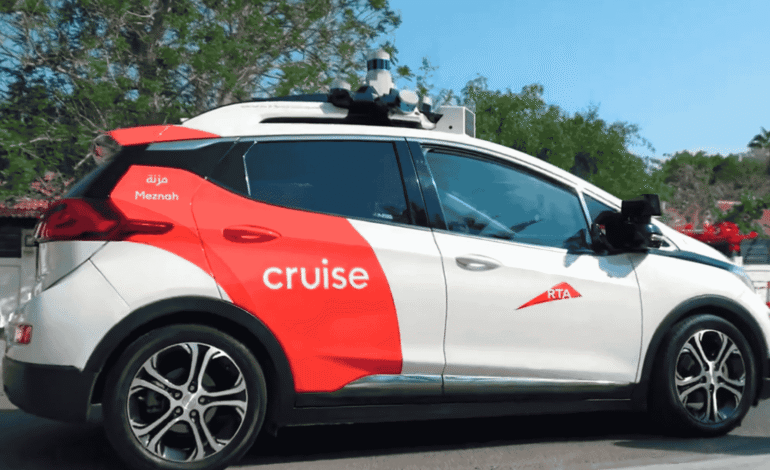Dubai’s Self-Driving Taxis Set to Launch in 2026

In a major leap toward becoming a global hub for smart transportation, Dubai is all set to initiate self-driving taxi trials as part of a groundbreaking initiative slated for a full-scale public launch in 2026. The city, renowned for its rapid adoption of cutting-edge technologies and futuristic infrastructure, continues to cement its place at the forefront of innovation by bringing autonomous vehicles into real-world urban environments. With the Roads and Transport Authority (RTA) spearheading this pioneering project, Dubai aims to revolutionize the future of urban mobility, improve road safety, reduce traffic congestion, and contribute to environmental sustainability. The upcoming trials will serve as a critical testing phase to evaluate the efficiency, safety, and integration of autonomous taxis into the broader transport network.
A Vision Rooted in the Dubai 2030 Strategy
The launch of self-driving taxi trials is not a standalone development but part of a much larger strategic framework: the Dubai Smart Self-Driving Transport Strategy. Unveiled by the government as part of its 2030 vision, the strategy seeks to transform 25 percent of all transport journeys in the city into autonomous ones by the end of the decade. This ambition aligns with Dubai’s overarching smart city agenda and its long-term sustainability goals. By embracing self-driving technology, the city aims to enhance transportation efficiency, cut emissions, and reduce human errors that lead to traffic accidents.
Key Collaborations with Global Innovators
Dubai’s ambitious self-driving initiative has seen crucial partnerships with global leaders in autonomous vehicle technologies. Among the most prominent collaborations is with Cruise, a U.S.-based autonomous vehicle company backed by General Motors. The RTA signed a landmark agreement with Cruise to deploy and operate self-driving taxis and ride-hailing services across the city. The partnership positions Dubai as the first city outside the United States where Cruise will operate commercially, showcasing the emirate’s appeal as a destination for innovation and investment.
Under this agreement, Cruise will initially introduce a limited number of autonomous taxis during the trial phase, with plans to scale up to thousands of vehicles by 2030. These vehicles, designed to operate without human intervention, are equipped with advanced sensors, lidar systems, high-definition maps, and artificial intelligence-driven navigation technologies. The integration of these vehicles into Dubai’s urban fabric represents a fusion of technology, infrastructure, and urban planning.
The Roadmap Toward Public Integration
The autonomous taxi trials will unfold in stages, beginning with closely monitored pilot programs in selected areas of the city. The first phase of the trials will focus on the performance of the self-driving vehicles in real-time traffic scenarios, assessing their responsiveness to dynamic urban conditions, including pedestrians, cyclists, and unpredictable traffic behaviors. The pilot routes are expected to be strategically chosen to minimize risks while maximizing data collection.
Once the vehicles demonstrate consistent safety and performance levels, the trials will expand to include a broader geographic range and more complex road networks. Throughout this process, safety protocols and regulatory compliance will remain top priorities. The RTA, in collaboration with Dubai Police and other civic authorities, will establish a robust framework to manage and monitor the operation of autonomous vehicles on public roads.
Enhancing Public Confidence Through Technology and Safety
A major component of the success of self-driving taxis lies in public acceptance and trust. Recognizing this, the RTA and its partners are taking significant steps to ensure the vehicles are equipped with state-of-the-art safety systems and fail-safe mechanisms. Each autonomous taxi will be outfitted with a redundant array of sensors, cameras, and radar systems to create a 360-degree view of the environment, enabling real-time decision-making with millisecond-level precision.
In the early stages, these vehicles will operate with onboard safety drivers to intervene in case of unexpected technical issues, ensuring passenger safety. Over time, as the technology proves its reliability, these vehicles will transition toward fully autonomous operations without human oversight. Additionally, public outreach campaigns, educational initiatives, and demonstrations will be conducted to familiarize residents and tourists with the new mode of transport.
Environmental Impact and Urban Sustainability
Beyond convenience and innovation, Dubai’s push toward self-driving taxis is also rooted in its commitment to environmental sustainability. Autonomous electric vehicles offer significant advantages in reducing greenhouse gas emissions, lowering noise pollution, and optimizing traffic flow. As part of its broader sustainability goals, Dubai envisions a future where clean energy and intelligent mobility solutions work in tandem to create a healthier urban ecosystem.
Electric-powered autonomous taxis are expected to replace a portion of the city’s traditional gasoline-fueled taxi fleet, contributing to a substantial drop in carbon emissions. Moreover, with algorithms designed to optimize routes, these vehicles can reduce idle time, cut down on unnecessary fuel consumption, and ensure smoother, more energy-efficient travel. This aligns with the United Arab Emirates’ Net Zero 2050 strategy and its pledge to combat climate change through innovative policy and technology.
Economic Opportunities and New Market Creation
The launch of self-driving taxi services is also projected to stimulate Dubai’s economy by opening new avenues for investment, job creation, and technological development. The autonomous mobility sector offers diverse opportunities for startups, tech firms, data analysts, and maintenance services to participate in a rapidly evolving industry. Local talent development and knowledge transfer from international partners will play a key role in positioning Dubai as a regional leader in autonomous transportation.
As part of this transition, new regulatory and administrative frameworks will also emerge, requiring specialized roles in legal compliance, cybersecurity, vehicle diagnostics, and customer service. Additionally, with the expected popularity of autonomous taxis among residents and tourists, the service is anticipated to boost Dubai’s tourism and hospitality sectors by offering a seamless, futuristic mode of transport across key destinations in the city.
Global Significance and Dubai’s Leadership Role
By launching self-driving taxi trials, Dubai further asserts itself as a global pioneer in smart city development. While many countries are still navigating the regulatory and technical challenges of autonomous vehicles, Dubai is positioning itself ahead of the curve with a clear vision, strong leadership, and swift execution. The emirate’s ability to integrate high-tech solutions into public infrastructure with government support demonstrates a successful model for future-forward urban development.
This initiative not only enhances Dubai’s global standing but also contributes to the worldwide discourse on autonomous mobility. As cities across the globe observe the results of Dubai’s trials, the lessons learned from its pilot programs and public rollout could shape international best practices and regulatory standards for autonomous transport.
Preparing Infrastructure for Driverless Mobility
To support the integration of autonomous taxis, Dubai has been investing heavily in intelligent infrastructure. Smart traffic signals, high-resolution mapping systems, dedicated pick-up and drop-off zones, and vehicle-to-infrastructure (V2I) communication systems are being developed or upgraded to ensure compatibility with autonomous vehicles. The city’s extensive 5G network and IoT deployment play a crucial role in enabling seamless real-time communication between vehicles and urban infrastructure.
The ongoing urban planning initiatives, such as the Dubai 2040 Urban Master Plan, are being aligned with the needs of autonomous mobility. Special lanes, redesigned intersections, and digital road signage are some of the changes being introduced to make the city more conducive to driverless vehicles. These developments ensure that by the time the full-scale rollout begins in 2026, Dubai will have a transport ecosystem ready to accommodate and optimize autonomous mobility.
Public Engagement and Passenger Experience
The future of autonomous taxis also hinges on the user experience. Dubai’s vision for self-driving mobility goes beyond just replacing drivers with algorithms—it aims to deliver a premium, seamless, and intuitive experience for passengers. From app-based bookings and facial recognition entry to AI-powered route planning and real-time language translation services, the autonomous taxi experience is expected to be uniquely tailored for a diverse population.
Customer feedback will be integral during the pilot phases, allowing operators to refine vehicle performance, comfort, and in-ride services. As trials progress, additional features such as customizable cabin settings, infotainment systems, and accessibility functions for differently-abled individuals will be introduced. These enhancements are designed to elevate public transport to a new standard that combines luxury, convenience, and intelligence.
Regulatory Framework and Ethical Considerations
Implementing self-driving taxis involves navigating a complex landscape of laws, ethics, and data privacy concerns. Dubai’s lawmakers and policymakers are proactively working on legal frameworks that address issues such as accident liability, cybersecurity, insurance, and passenger rights. The RTA is expected to launch a regulatory sandbox to test policies in parallel with technical trials, ensuring that innovation is balanced with accountability.
Ethical considerations around decision-making in autonomous systems, especially in emergency situations, are also being addressed through collaboration with academia and ethics boards. Clear data governance structures will regulate how autonomous vehicles collect, store, and use data, maintaining transparency and safeguarding passenger privacy.
Future Outlook and Long-Term Impact
As Dubai moves closer to the official launch of self-driving taxis in 2026, the city is setting a new benchmark for urban innovation and technological ambition. The upcoming trials mark a turning point in transportation history—one where AI and automation become an intrinsic part of everyday mobility. With careful planning, strategic partnerships, and a commitment to safety and sustainability, Dubai’s autonomous taxi project could become a global case study in transforming ambitious visions into reality.








1 Comment
[…] also introduced the Dubai Sandbox initiative, which provides a space for innovators to test new technologies and services before they are scaled up across the government ecosystem. This initiative plays a crucial role in […]
Comments are closed.